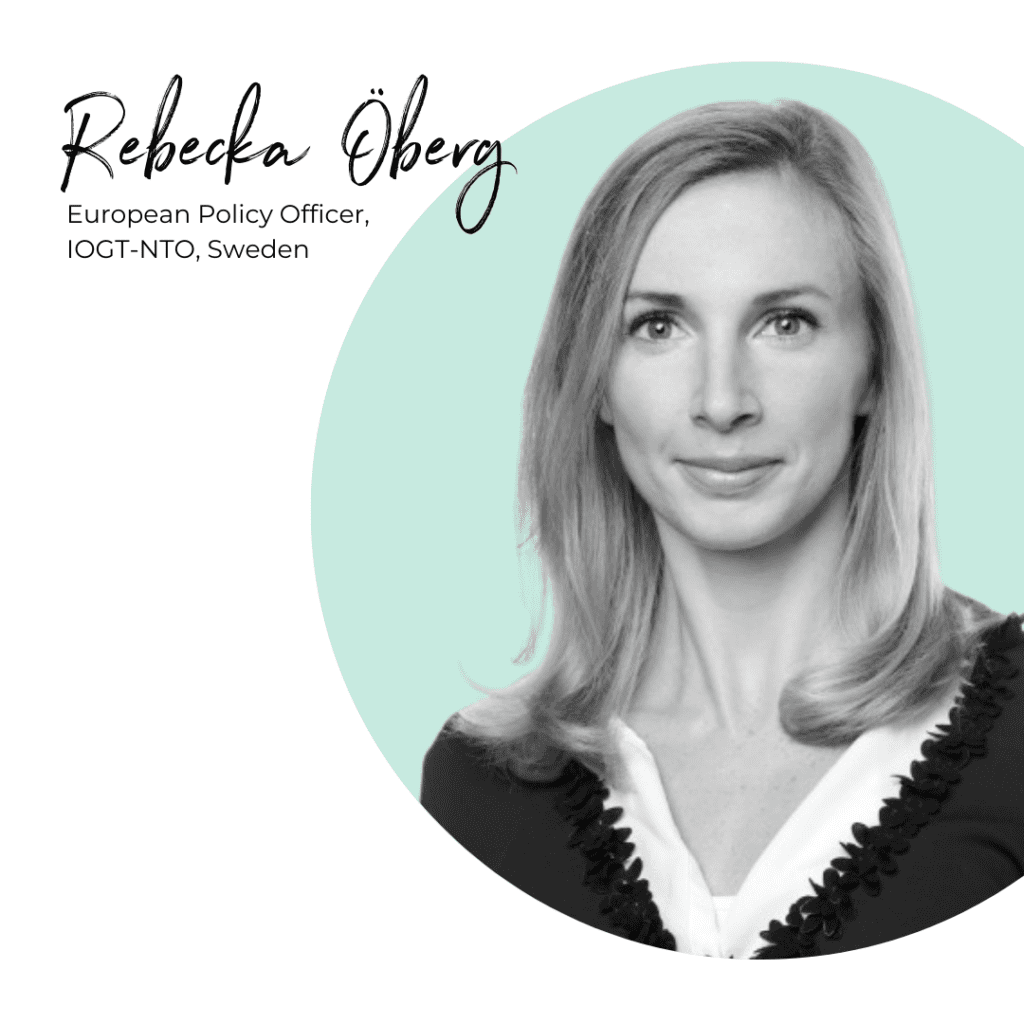By Rebecka Öberg
Growing capacity and excellence in promoting health for Europeans
As most know, different bodies age with different speed – a dog’s five times faster than a human’s, a cat’s four. But how do you count the actual age and maturity of an international body? The question is as relevant for IOGT-NTO – going into 144 years of health advocacy, as it is for the European Public Health Alliance (EPHA), which just celebrated its 30th anniversary with the conference ”Empower Health – People, Politics, Possibilities”.
We are now at the beginning of a fast-paced era of change agency.”
Rebecka Öberg
Interestingly, the key message from the conference is that international bodies can mature with exponential speed, and that we are now at the beginning of a fast-paced era of change agency.
Data driven advocacy to reach health for all
This point was highlighted during many of the event’s high-profile panel discussions, debates and inspirational speeches. Particularly, in one roundtable session, Nick Sheron, professor at the University of Southampton, detailed how health data is becoming more ample and available for international organizations than ever been before. Scientific data and health surveys can now, with more simplicity, be translated into evidence-based policies and into tools for public advocacy.
Another widely discussed theme concerned the current technological surge, and how it enables a new era of growth and maturity for international organizations. Technology, particularly in the form of social media, is making NGOs accessible to new groups, and is providing new outlets for their engagement.
From the left: Rebecka Öberg, Lovisa Arnmarker
Learning from advocacy success to drive progress
Lastly, a greatly acknowledged fact during the conference was how recent success stories have the power to foster new, swift achievements ahead. As an example, Florence Berteletti, Secretary General of the European Alcohol Policy Alliance (Eurocare), highlighted how the successful tobacco control movement can serve as a model for similar successes in the area of alcohol policy – what is needed is a strong and unified voice.
Scientific data and health surveys can now, with more simplicity, be translated into evidence-based policies and into tools for public advocacy.”
Rebecka Öberg
With this, IOGT-NTO would like to congratulate EPHA on its 30 years of operation and all the achievements. We are looking forward to sharing the upcoming years of fast-paced changes and development, and to, with joint efforts for alcohol prevention, help to contribute to health and well-being across the life course, as societies in Europe are aging.
Public health initiatives should be protected from alcohol industry interference and the European Commission, as well as national governments, should not open their doors to the alcohol lobby, following the example of how they deal with Big Tobacco.
About Our Guest Expert
Rebecka Öberg
Rebecka is European Policy Officer at IOGT-NTO and leads the Brussels office.
You can follow Rebecka’s work on X: @Brysselkontoret



Can you elaborate on how health data availability is increasing, enabling the translation of scientific data and health surveys into evidence-based policies and tools for public advocacy, as discussed during the roundtable session by Professor Nick Sheron at the event?